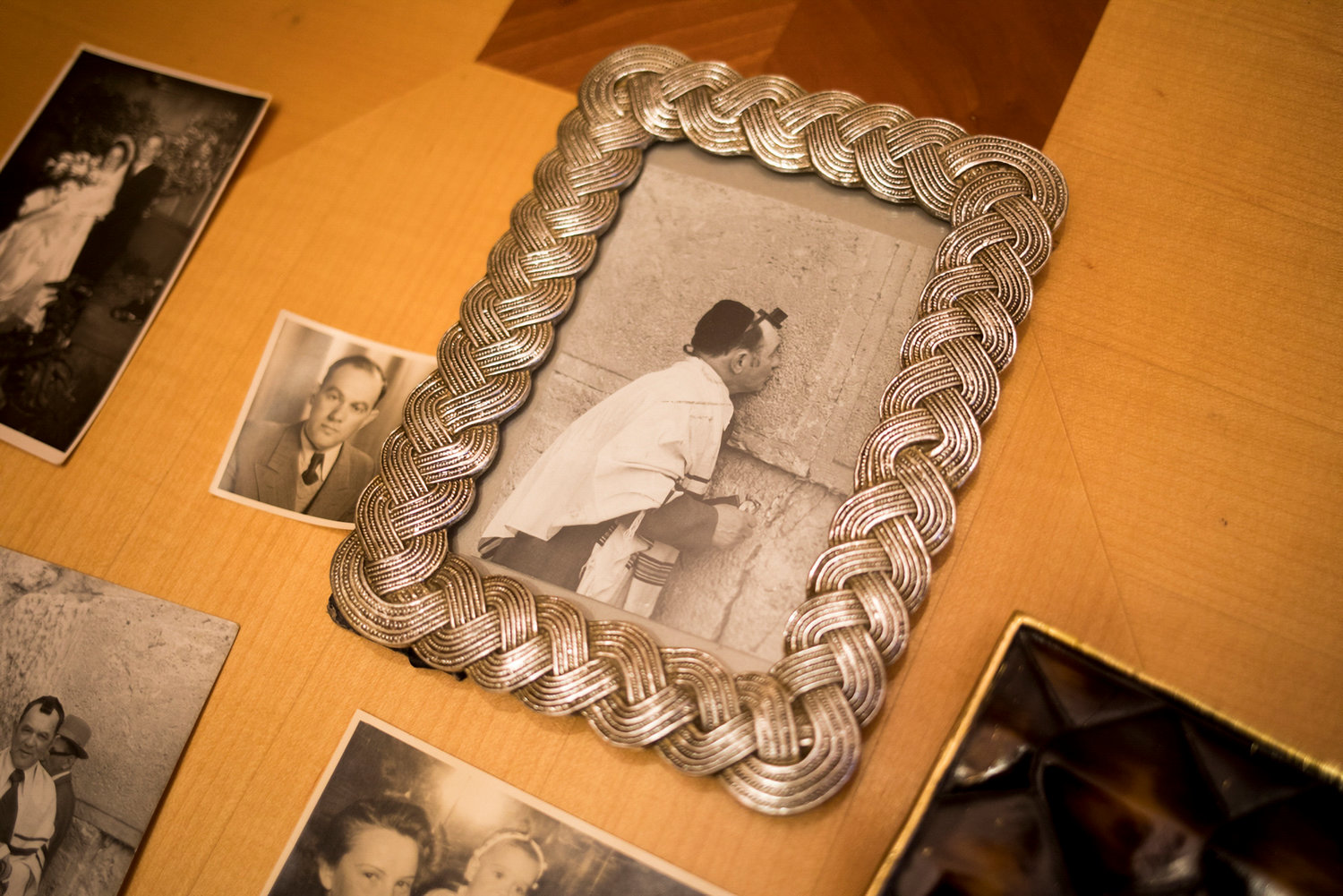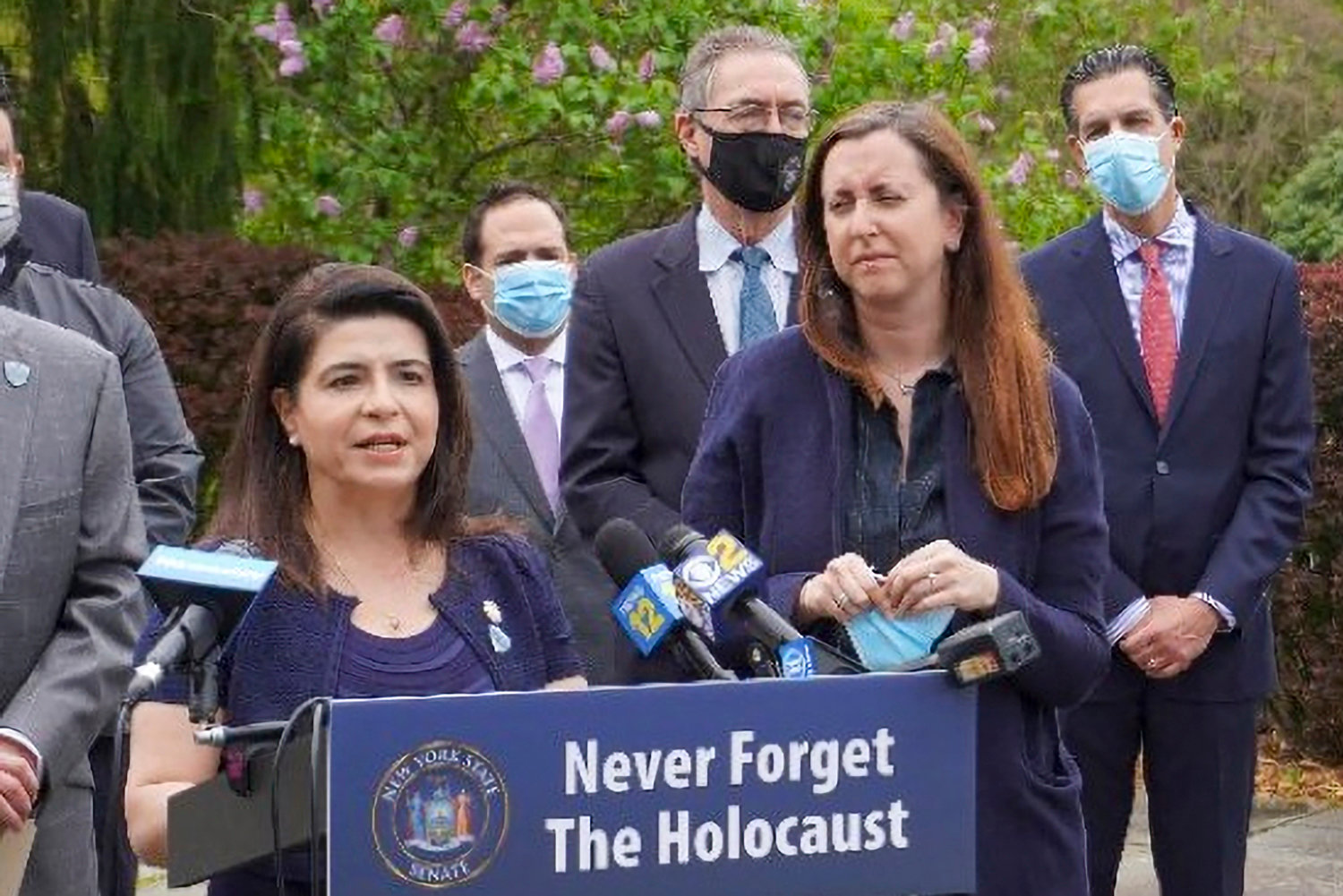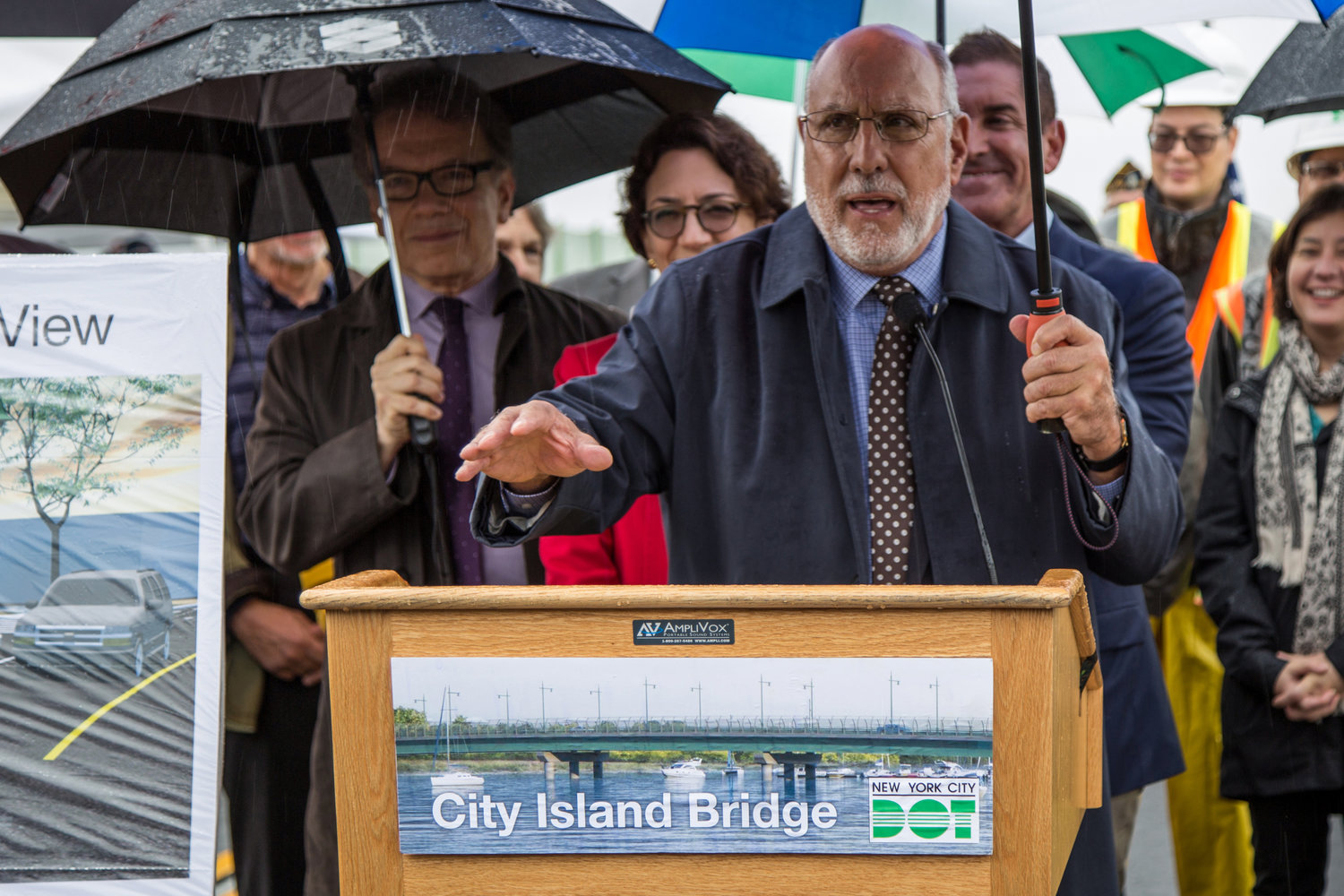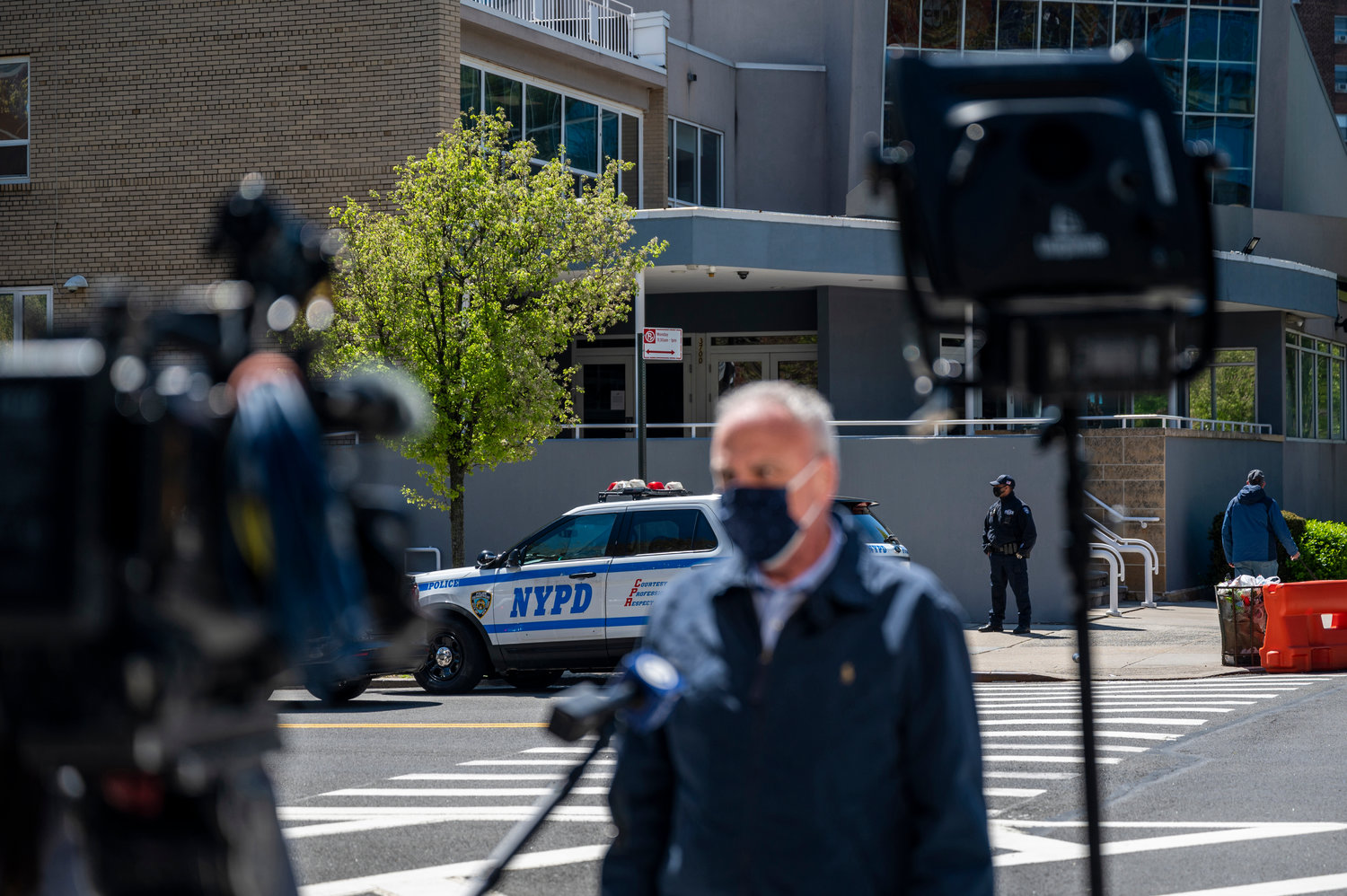Could better education stem hate?
Memories of the Holocaust still haunt Jessica Haller, even though she didn’t personally live through it.
As the granddaughter of Holocaust survivors, she might not have experienced the horrors of the state-sponsored genocide that killed at least 6 million Jews during World War II, but that trauma has passed down in her family through the generations.
In fact, Haller still thinks of how it affected her father, who was born in a displaced persons camp.
“My dad, when I was little, used to clear a path from my bed to the door every night,” she said. “Now, most parents might do that because you might have to use the facilities right? (But) he used to say, ‘In case we need to escape in the middle of the night.’”
Echoes of those horrors were revisited in April after a vandal smashed the windows of four local synagogues with rocks.
Such anti-Semitism is not just happening in this corner of the Bronx. It’s been on the rise nationally in recent weeks, especially after the most recent outbreak of violence between Israel and Palestinians.
Haller sees a direct link between the rise in anti-Semitism and a lack of effective Holocaust education in public schools. That’s why she’s advocating for passing legislation aimed to ensure school districts around the state are teaching about the atrocities properly.
The bill is sponsored by Queens Assemblywoman Nily Rozic and Great Neck state Sen. Anna Kaplan in their respective chambers. Locally Assemblyman Jeffrey Dinowitz is a co-sponsor for the lower-chamber bill.
“It’s very obvious that we should connect the dots between our education system and the rise of vitriol and hate we’ve seen in the last couple of years, and certainly over the last week,” Rozic said. “We need to do everything we can to educate future generations on the horrors of the Holocaust, so that they don’t repeat themselves in the streets of New York City.”
Because the state’s education department already requires schools to teach about the Holocaust, Rozic’s bill would initiate a study ensuring school districts are following these requirements. Rozic isn’t optimistic she’ll get positive results because she says she’s heard time and again from parents and families the Holocaust isn’t taught adequately.
“Educators from across the city and state have reached out over the years, asking for more resources,” Rozic said. “Jewish families remain concerned that the Holocaust has not been taught in the classroom. And there’s only one way to figure that out. The state education department has to do a review to see what works and what is not working in the classroom.”
Rozic points to a survey from the Conference on Jewish Material Claims Against Germany that looked at Holocaust knowledge among people between 18 and 39 from all 50 states. They were asked if they had heard of the Holocaust, knew how many people were killed, and if they could name a concentration camp or ghetto, among other questions.
New York finished as one of the worst performing states — 58 percent couldn’t name a concentration camp or ghetto, and a fifth of them believed Jewish people actually caused the Holocaust.
Moving blame from the Nazis to the victims was particularly concerning for Haller, only reinforcing her call for the state to audit how the Holocaust is being taught.
“So, in my mind, does any bit of education help?” she asked. “Yeah. Jews caused the Holocaust? Excuse me? Like, well, yeah, it does matter.”
Rozic has tried to make this bill law in past years, but says it’s become even more pressing now, especially with the recent rise in anti-Semitism.
“It’s my highest priority in this legislative session,” Rozic said. “We have (a week) left until the end of session. And my hope is that colleagues will see what is happening to the Jewish community, and will speak up for meaningful legislation like this.”
However, not every lawmaker is on board. Rozic’s bill was temporally stalled in the Assembly education committee last week when its chair, Michael Benedetto, nearly stopped it from moving out of committee.
Benedetto — who represents part of the east Bronx — said he opposed the legislation because laws already exist requiring New York schools to teach about the Holocaust. He added there are already systems of accountability in place to ensure it’s being taught effectively.
“Well, the simple fact of the matter is, the Holocaust is taught in school,” Benedetto said. “That’s what we have superintendents and supervisors for within the schools, to check to make sure that teachers are doing their job. That’s why you have to do a general overview to see if the teachers are teaching the required material, and that students are getting the best material given.”
Parents and teachers have come to him over the years with complaints about various subjects not being taught in school properly, Benedetto said, and the lawmaker has learned to take those complaints with a big grain of salt.
“I really have no reason to call upon the finances and the manpower of the state education department that would be used to basically look to find out about something, which we’re fairly confident is being done right now,” Benedetto said.
Ultimately, enough lawmakers on the committee did think it was necessary enough to override Benedetto. That moved the bill on to the next committee with hopes it will ultimately get called for a vote on the Assembly floor.
The study isn’t wasting resources, Haller said. And it could have long-term benefits for improving education about other atrocities, like slavery, in schools.
“It’s not about money,” she said. “It just has to happen. And maybe it is a model to see how we address all sorts of other things in our public system.”
Want to read this story in print? Click Here













